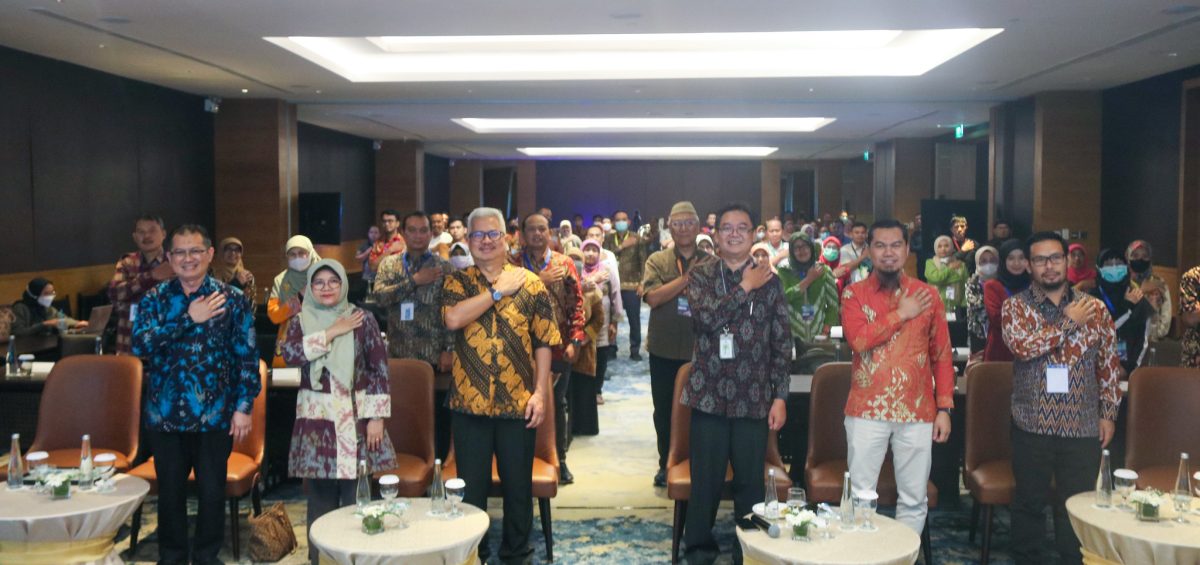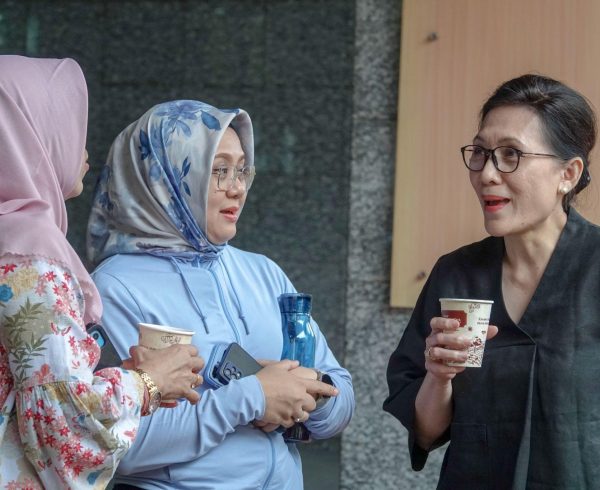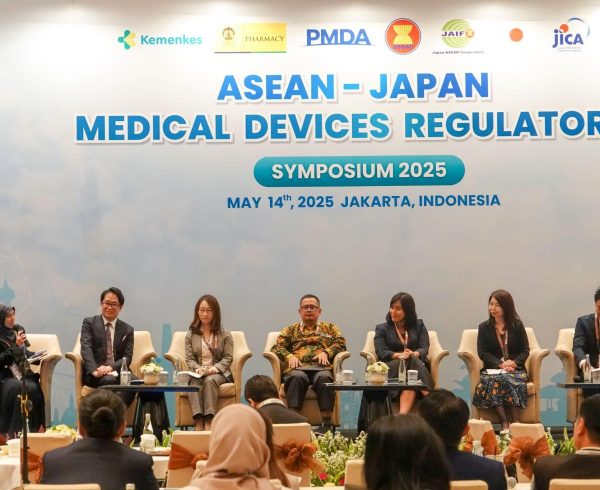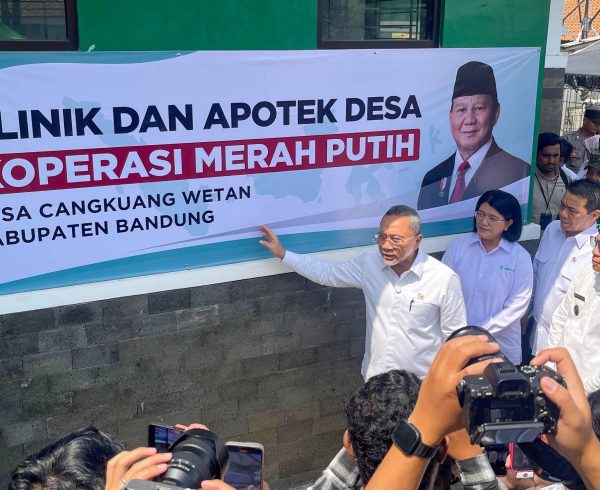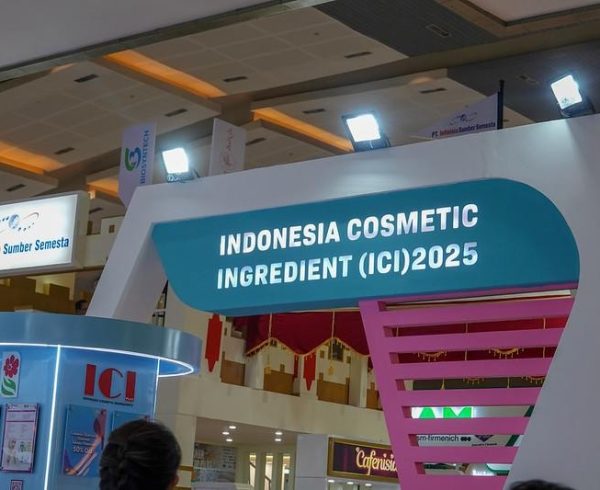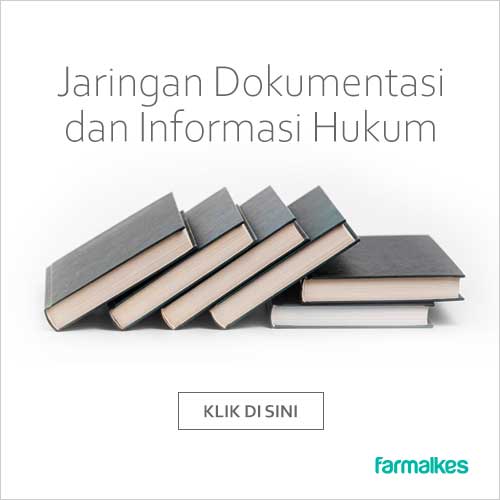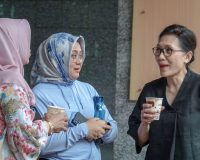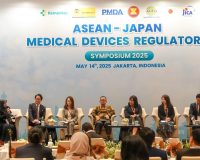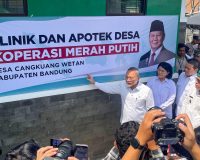Beragam upaya dilakukan untuk mencapai kemandirian alat kesehatan dalam negeri, salah satunya melalui kegiatan business matching antara pengguna di sektor pelayanan kesehatan pemerintah dengan industri alat kesehatan dalam negeri.
Business matching dan pameran alat kesehatan produksi Indonesia dihelat pada selasa (20/9) di Surabaya. Kegiatan ini merupakan rangkaian dari kegiatan sebelumnya yang telah dilaksanakan di berbagai kota, antara lain Regional Barat di Kota Medan, Regional Tengah di Kota Lombok dan Regional Timur di Kota Manado.
Plh. Direktur Ketahanan Kefarmasian dan Alat Kesehatan Doni Arianto dalam laporannya menyampaikan bahwa pertemuan ini merupakan salah satu kegiatan dalam upaya peningkatan pengetahuan user alat kesehatan satuan kerja pemerintah terkait teknologi dan mutu alat kesehatan produksi dalam negeri.
“Dilaksanakan dengan bentuk workshop, one on one business matching, product presentation, pameran alat kesehatan dalam negeri dan business networking antara peneliti bidang alat kesehatan dari Institut Teknologi Sepuluh Nopember (ITS), Universitas Airlangga (UNAIR) dan Universitas Brawijaya (UB) dengan industri alat kesehatan sebagai upaya hilirisasi produk alat kesehatan dalam negeri,” tambah Doni.

“Saat ini di Jawa Timur terdapat 1.500-an rumah sakit, 972 Puskesmas, fasilitas pelayanan kesehatan yang ada akan membutuhkan alat kesehatan, pembelian alat kesehatan yang berisiko tinggi harus berhati-hati, karena patient safety adalah yang utama. Pemerintah mewajibkan untuk pembelian alat kesehatan produksi dalam negeri dan kita harus mendukung dan men-support pemerintah,” ujar Kepala Bidang Sumber Daya Kesehatan Dinas Kesehatan Provinsi Jawa Timur Lili Aprilianti dalam sambutannya.
Sejalan dengan Instruksi Presiden Nomor 2 Tahun 2022 tentang Percepatan Peningkatan Penggunaan Produk Dalam Negeri dan Produk Usaha Mikro, Usaha Kecil, dan Koperasi Untuk Menyukseskan Gerakan Nasional Bangga Buatan Indonesia dalam Pelaksanaan Pengadaan Barang/Jasa Pemerintah, Kementerian Kesehatan melalui Pilar ke-3 Transformasi Sistem Kesehatan, senantiasa berupaya meningkatkan ketahanan sektor farmasi dan alat kesehatan. Salah satunya dengan meningkatkan pertumbuhan industri dan jenis alat kesehatan dalam negeri dan meningkatkan belanja alat kesehatan produksi dalam negeri.
“Saat Inpres No. 2/2022 ini dikeluarkan, Presiden Joko Widodo secara khusus menyampaikan kepada Kepala Kementerian/Lembaga serta Kepala Daerah di seluruh Indonesia, untuk melakukan percepatan penggunaan produk dalam negeri. Saat itu beliau secara khusus menyampaikan terkait penggunaan alat kesehatan dalam negeri, sudah banyak produk-produk yang dapat dihasilkan oleh produsen-produsen lokal, tetapi kemauan untuk menggunakan masih sangat rendah. Beliau mengatakan tidak ingin lagi mendengarkan ada tempat tidur rumah sakit, kursi roda ataupun alat kesehatan diimpor,” ungkap Dirjen Rizka dalam pembukaan acara business matching.
“Kegiatan ini bertujuan untuk memberikan informasi kepada para user terkait produk-produk alat kesehatan yang diproduksi di dalam negeri, memperkenalkan kepada para Direktur RS, para Pejabat Pengadaan Barang dan Jasa, bagaimana memilih produk-produk dengan nilai TKDN tinggi yang ada di e-Katalog sehingga dapat mengoptimalkan pengunaan produk-produk dalam negeri, serta memfasilitasi para pelaku usaha untuk melakukan pameran produk dalam negeri,” tambah Dirjen Rizka.
Lebih lanjut Dirjen Rizka menyampaikan agar para user dapat menggunakan alkes dalam negeri, semakin banyak digunakan semakin bagus mutu dari alkes tersebut, karena kita akan mendapatkan user experience, yang nantinya dapat digunakan untuk memperbaiki mutu dari alkes dalam negeri. Jika kita tidak memulai untuk memaksa menggunakan produk dalam negeri ini, maka kualitas atau kemampuan dari industri-indusrti dalam negeri kita juga tidak akan meningkat.
“Berdasarkan data e-Katalog LKPP, terdapat peningkatan transaksi alat kesehatan dalam negeri hingga 3,8 kali lipat dibandingkan tahun 2019–2021, jumlah izin edar alat kesehatan dalam negeri juga mengalami peningkatan sebesar 68,80 persen selama 3 tahun terakhir,” jelas Dirjen Rizka.
Hal ini tentu tidak dapat dicapai tanpa adanya kolaborasi sinergis antara sektor pemerintah, swasta, dan masyarakat. Pengunaan produk dalam negeri di sektor pelayanan kesehatan tidak hanya dilakukan sebagai ungkapan kebanggaan atas hasil karya inovatif anak bangsa, tetapi juga menunjukkan bahwa produk alat kesehatan Indonesia telah memenuhi kualitas mutu, aman, dan bermanfaat, serta terjangkau bagi masyarakat.
Meskipun mengalami peningkatan, neraca perdagangan alkes Indonesia pada tahun 2022 masih mengalami defisit akibat dominasi transaksi impor.
Kementerian Kesehatan telah membuat berbagai kebijakan untuk mendorong ketahanan kefarmasian dan alat kesehatan, antara lain dengan melakukan substitusi produk impor. Di mana telah diatur apabila produk dalam negeri sudah bisa memenuhi kebutuhan nasional, maka akan dilakukan freeze atau turun tayang pada produk impor alat kesehatan di e-Katalog.
“Hal ini memberikan jaminan pasar bagi alkes dalam negeri dalam proses pengadaan barang/jasa pemerintah di fasilitas pelayanan kesehatan. Selain itu, mutu alkes dalam negeri juga diupayakan untuk terus ditingkatkan dan memiliki kualitas yang dapat dipertanggungjawabkan melalui pengawasan pre-market dan post-market,” tutup Dirjen Rizka.
Pada kesempatan ini, Kementerian Kesehatan juga memberikan apresiasi kepada tiga rumah sakit yang memiliki komitmen dalam realisasi belanja alkes dalam negeri tertinggi se-Provinsi Jawa Timur melalui e-Katalog periode Januari–Desember 2022.
Yaitu pada kategori tinggi (lebih dari Rp50 M) diraih oleh RSUD Sidoarjo dengan belanja alkes dalam negeri sebesar 45,12 persen, pada kategori menengah (15–50 M) diraih oleh RSUD Dr. Soeroto Ngawi, dengan belanja alkes dalam negeri sebesar 83,72 persen dan pada kategori rendah (kurang dari Rp15 M) diraih oleh RSUD Sumberglagah Mojokerto dengan belanja alkes sebesar 83,61 persen.
Pertemuan yang berlangsung selama tiga hari ini dihadiri oleh Staf Khusus Menteri Bidang Ketahanan (Resiliency) Industri Obat dan Alkes, Pusat Peningkatan Penggunaan Produksi Dalam Negeri (P3DN), Badan Pengawasan Keuangan dan Pembangunan (BPKP), Biro Pengadaan Barang dan Jasa, Dinas Kesehatan Provinsi Jawa Timur, RSUD di wilayah Jawa Timur, peneliti, asosiasi dan 80 penyedia alat kesehatan produksi dalam negeri yang ikut berpartisipasi pada pameran alkes dalam negeri.


